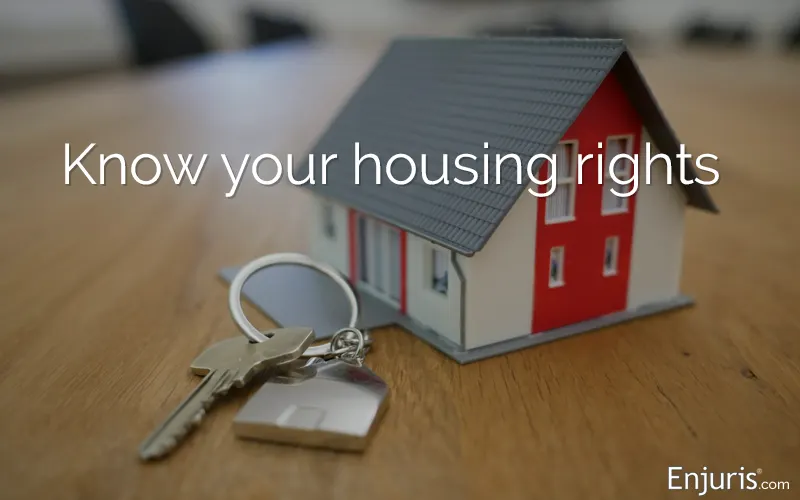
Discover what every New York landlord and tenant needs to know
This article outlines the key responsibilities of landlords and tenants in New York. It covers essential aspects such as the warranty of habitability, maintenance requirements, security deposit rules, and legal remedies available for both parties to ensure fair and lawful housing practices.
Imagine waking up one morning to find water dripping from your ceiling or cockroaches skittering across your kitchen floor.
Who is responsible for dealing with these issues?
New York has strict laws in place outlining the responsibilities of landlords and tenants, ensuring both parties are protected and treated fairly.
New York’s landlord-tenant laws are mostly found in Chapter 50, Article 7 of the Consolidated Laws of New York. Although it’s a good idea to review all of these laws, this article highlights five key responsibilities landlords and tenants should be aware of.
Top landlord responsibilities in New York
Maintaining a positive landlord-tenant relationship can be made simpler by understanding the top landlord responsibilities in New York, which are essential to maintaining a safe and comfortable living environment for tenants.
- Warranty of habitability: New York landlords must ensure their properties are “habitable.” This includes maintaining basic structural integrity and essential services, such as heating, plumbing, and electrical systems.
- Maintenance and timely repairs: Landlords are required to keep rental properties in good repair. This includes making necessary repairs promptly. Generally speaking, landlords have 24 hours to fix “immediately hazardous” conditions, 30 days to fix “hazardous” conditions, and 90 days to fix “non-hazardous conditions.”
- Security deposit management: New York landlords must adhere to strict laws when handling security deposits. For example, landlords must limit the security deposit to one month’s rent, keep the deposit in a separate bank account, and return the security deposit—along with a written accounting of any deductions—within 14 days after the tenant leaves the property.
- Proper notice of access: Under New York law, landlords must give tenants proper written notice for things like rent increases (60 or 90 days), entry to the property for inspection (24 hours) or repairs (one week).
- Adherence to fair housing laws: New York landlords must comply with federal and state fair housing laws, which prohibit discrimination based on race, national origin, religion, sex, familial status, or disability.
- Installation of safety devices: Landlords are required to install and maintain safety devices, including smoke detectors and carbon monoxide detectors.
- Heat requirements: New York landlords must provide heat in accordance with local housing codes. Typically, heat must be supplied from October 1 through May 31, maintaining a minimum temperature set by local laws during the heating season.
Top tenant responsibilities in New York
Tenants are often focused on their landlord’s obligations, but it’s important to remember that tenants themselves have specific responsibilities. These must be adhered to in order to maintain a harmonious living environment and avoid potential risks such as penalties or eviction.
- Timely rent payment: Tenants are required to pay their rent on time as specified in their lease agreement. Failure to do so may result in late fees or eviction proceedings.
- Cleanliness and sanitation: Tenants are responsible for keeping their living space clean and sanitary. This includes regularly disposing of trash in designated areas and ensuring their rental unit is hygienically maintained to prevent health risks.
- Notification of maintenance needs: Although landlords are responsible for making certain repairs, it’s the tenant’s duty to promptly inform the landlord of any issues requiring maintenance or repair, ideally in writing.
- Preventing property damage: Tenants must avoid causing damage to the property beyond normal wear and tear.
- Adherence to lease terms: Tenants must comply with all terms and conditions specified in their rental agreement, such as those concerning smoking, noise, pets, or making alterations on the premises.
- Window guard compliance: In New York, tenants with children 10 years old or younger must typically comply with regulations requiring the installation of window guards.
Legal remedies for landlords and tenants in New York
In New York, when a landlord or tenant fails to fulfill their legal obligations, there are various avenues available for addressing the issue:
- Communication and negotiation: The first step for resolving disputes should be direct communication and negotiation. Often, issues can be settled amicably without legal proceedings.
- Written notice: If discussions don’t lead to a resolution, the aggrieved party should issue a written notice detailing the breach and requesting some action. For example, if a landlord neglects a necessary repair, the tenant should send a written request for the repairs to be completed within a specified period. When sending any formal notice, it’s a good idea to use certified mail with a return receipt requested.
- Mediation: Both parties might consider mediation as an alternative to litigation. Mediation is often less expensive and more informal.
- Legal action: If the dispute remains unresolved, legal action may be necessary. Landlords might file for eviction under an unlawful detainer action if tenants don’t address lease violation, and tenants might sue for damages or other legal remedies if landlords fail to meet their obligations.
- Local housing authorities or agencies in New York: Tenants facing unresolved issues can turn to housing authorities or agencies for assistance. Organizations such as the New York State Homes and Community Renewal (HCR) or the New York City Housing Preservation and Development (HPD) provide guidance and support tailored to New York's housing laws.
Still have questions? The following resources may help:
- New York Guide to Landlord-Tenant Laws
- Can I Take Legal Action Against My Landlord for Mold in New York?
- How to Get Your Security Deposit Back in New York
- New York Rental FAQs: A Guide for Landlords and Tenants
See our guide Choosing a personal injury attorney.
